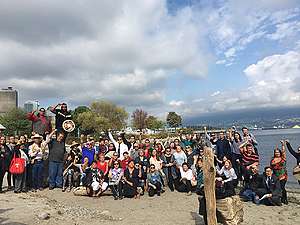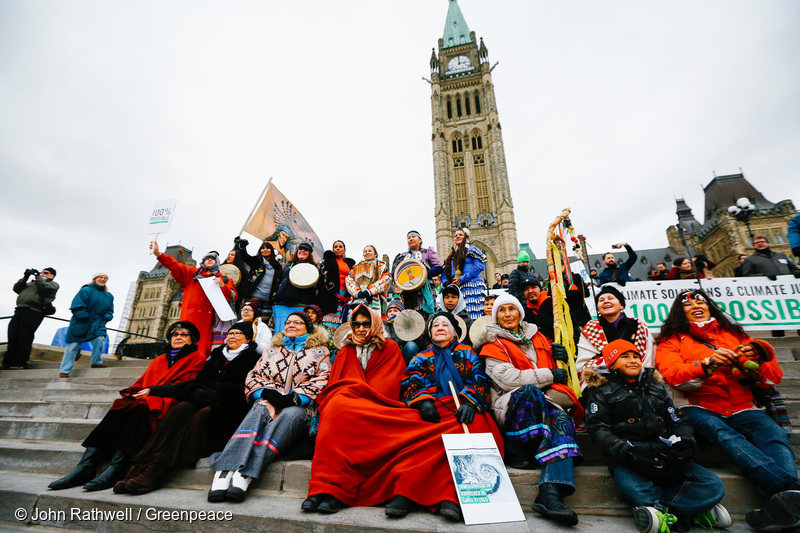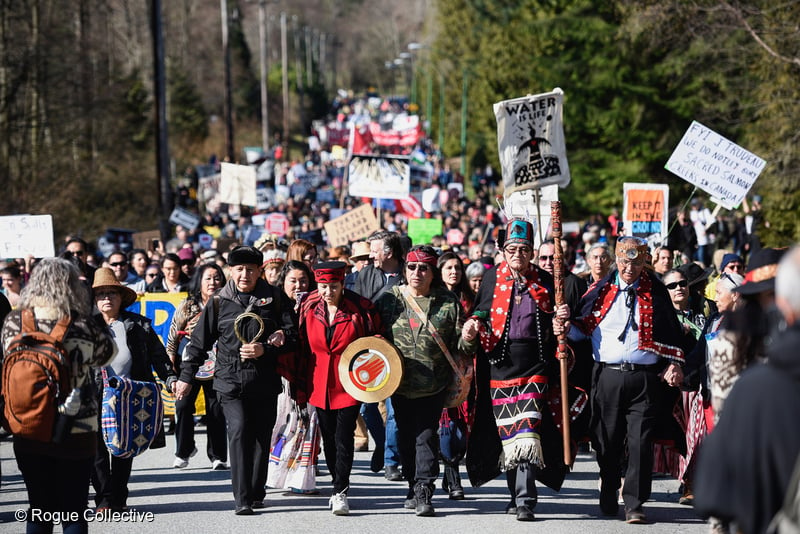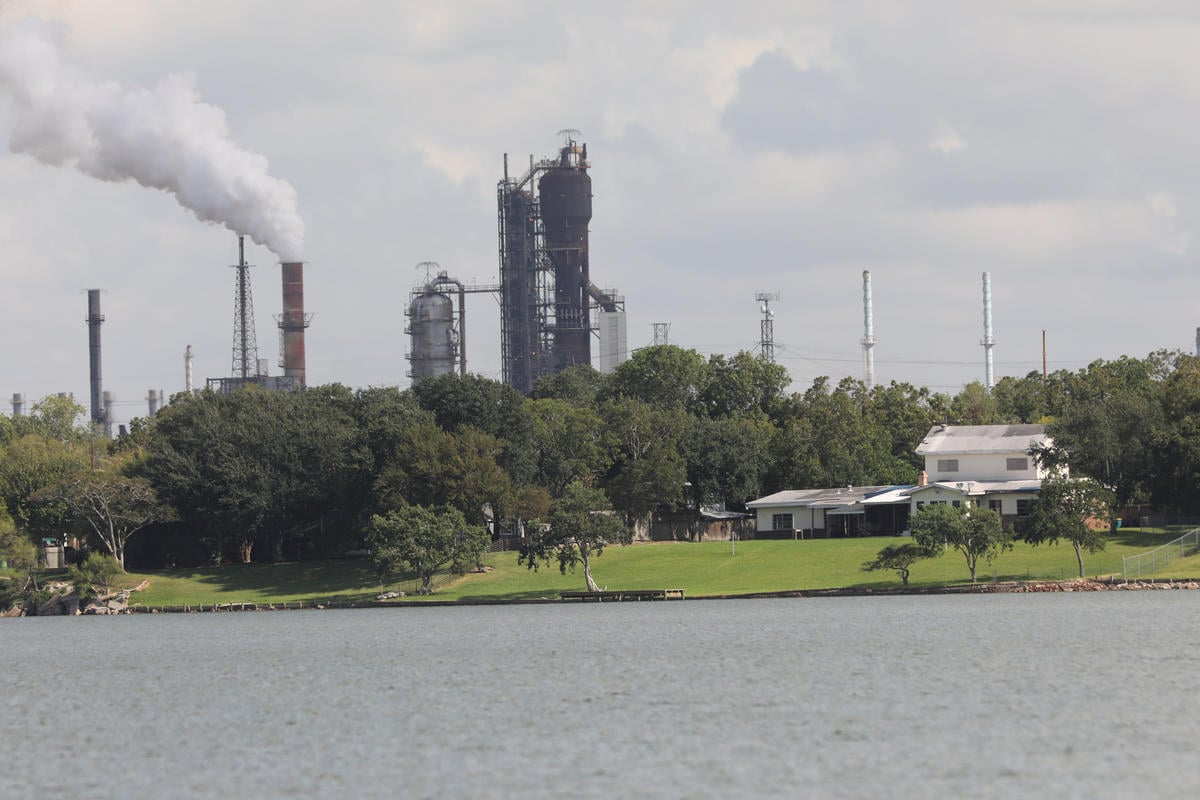
Indigenous Nations and Environmentalists win major pipeline battle.
It was an amazing day.
A decision over 9 years in the making, quashing the TransMountain pipeline.
The decision upheld the arguments Indigenous Nations had been making since this broken process began. It upheld the fact that Canada failed to meaningfully consult and accommodate the concerns of a litany of First Nations, falling “well short of the mark, ” according to the court’s decision.
The court also found the government made a “critical error” by basing its decision on a National Energy Board (NEB) report that illegally excluded marine shipping from its review.
Both of these findings place major roadblocks that will be difficult, if not impossible, for this failing pipeline project to overcome.
The government’s road forward is unclear and all construction has been stopped indefinitely.

Consultation.
Most of the concerns raised by the Indigenous Nations that brought the lawsuit aren’t small concerns that will be easy for the Federal Government to address.
Just to cite one example, the pipeline would cross and endanger the primary water supply for the Cold Water First Nation. In the event of a spill that water supply could collapse forcing the community to rely on bottled water. Likely the only way to address that concern is to move the pipeline (not an inexpensive venture).
Many Indigenous Nations will also be pushing the government to uphold its consultation requirements by living up to the U.N. Declaration on the Rights of Indigenous Peoples – an international declaration that Canada has ratified and both Prime Minister Trudeau and Alberta Premier Rachel Notley have said they wish to uphold. That document enshrines the rights of Indigenous Peoples to Free, Prior and Informed Consent. Something this project doesn’t have from the vast majority of Indigenous Nations it would impact and something the Federal government is ever likely to get.
Respecting the Prime Minister’s own commitments and the rights of Indigenous Peoples means respecting their right to say no. If the government was to do that and truly live a path of Indigenous reconciliation it would mean this project is a definite no go.
Orcas.

The Southern Resident Orca population is on the edge of extinction and is facing imminent threats to its survival. There are only 75 Southern Resident Orcas left in existence. Another adolescent has already been observed as extremely emaciated. Because of dwindling food supplies, increased marine traffic, climate change and other factors the entire population is at risk. One of the reasons these orcas are struggling to survive is because the Chinook salmon they depend on for food are declining. Research also suggests that climate change will present enormous challenges for salmon. The Trans Mountain Expansion project would cross over 1300 streams and rivers on its way to the ocean and would put this key food supply even further at risk.
If it goes ahead, the Trans Mountain pipeline expansion could also turn the home of the 75 remaining orcas into a tar sands tanker superhighway – bringing over 400 tankers through their critical habitat every year. The noise from a sevenfold increase in tanker traffic would interfere with the orca’s ability to find what little food there is left to eat. A catastrophic oil spill could be the final nail in their coffin (as the Exxon Valdez spill devastated other orca pods).
These are not easy problems for the federal government to solve. The government has legal obligations under the Species at Risk Act to protect this endangered population. That will be a difficult task for the government to live up to as existing issues are already putting the orca population’s survival at risk never mind the new threats the Trans Mountain pipeline project would bring.
So what does this all mean.

What this means is that the Trans Mountain pipeline will face months if not years of delay. Delays that will not see a single shovel hit the ground.
Even if the federal government were to overcome these hurdles, the new approval will likely face a new slate of legal challenges that could tie the project up in court, lead to more uncertainty, and mean even more delays.
This is not to mention the fact that the resistance to this project on the ground isn’t going anywhere. Already over 250 people have been arrested confronting this project and if the project ever tries to move forward again the growing movement against this project will be there to stop it.
Conclusion.
Take this moment to celebrate. Celebrate this amazing victory for Indigenous rights, for the protection of the lands and waters. Celebrate the beautiful places that are a little more protected, the water that is a little more safe and the amazing Indigenous leaders and people that brought us this victory.
All of us stood up to one of the largest industries on the planet and we won last week, and if this beleaguered pipeline ever tries to move forward we will win again.
This weekend make your voice heard in one of the hundreds of events happening around the world. On Sept. 8th, all around the world, we Rise for #Climate, Jobs, and Justice. Join us: https://buff.ly/2vNVR8d
If you’re in Coast Salish Territories why not join us for a victory march led by the Squamish Nation on Sept. 15th. Details here.




